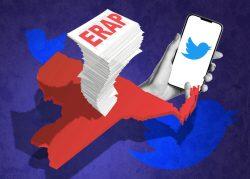New York will finally shutter its emergency rental assistance program Friday night, closing a loophole that allowed nonpaying tenants to delay eviction just by applying for a relief fund that’s been mostly dried up for more than a year.
The state’s Office of Temporary and Disability Assistance, which administers the program, said it had “clearly delivered for the people of New York,” a pat on the back that ignores the untold number of landlords whose tenants have pending applications — and thus will continue to receive eviction protections despite the “unlikely possibility” that more funds will ever come.
Absent little direction from the state as to what will become of the more than 17,000 applications still pending, small landlords plunged into financial distress are now considering litigation.
No suit has been filed to date, but conversations with landlords and rumblings on Twitter suggest that property owners forced to house tenants on their own dime — for years, in some cases — believe they are entitled to restitution.
“I imagine there will be lawsuits against the state for this unpaid rent,” said Ann Korchak, a spokesperson for the landlord group Small Property Owners of New York.
“[New York] closed the courts, made our lease contracts meaningless and created an underfunded, poorly designed portal,” she added.
Two lawsuits filed late last year by much larger landlords could offer a framework.
Brookfield Properties and LeFrak, which own thousands of apartments in the city, filed separate complaints in November, alleging the automatic stay on evictions provided by ERAP was unconstitutional because it violated the landlords’ right to due process.
LeFrak claimed it was stuck with over $535,000 in unpaid rent. Brookfield said it was out more than $150,000 in arrears that extended well beyond the 15 months of rent that ERAP is authorized to cover.
The suits showcase how disruptive that amount of debt can be for a large owner. For small landlords, the impact can be disastrous.
June Margolin, a Long Island homeowner and landlord advocate, said she and her husband are $60,000 in debt on just one unit due to lost rent, legal fees and damages. She expects it will take them a decade to dig themselves out — if they can manage to keep their house.
Shane McCarthy, a small landlord who missed out on the short-lived landlord rental assistance program, said he was more than $100,000 in the hole as of January.
“Would you have any info on landlords suing New York State as a collective group?” McCarthy asked in an email. So far, no.
Korchak said landlords vying for repayment have yet to take organized legal action. The primary obstacle: It’s expensive.
“We don’t really have the deep pockets to potentially fund a long, expensive lawsuit,” she said. “We’re mostly concentrated on paying our bills.”
Margolin said she’s looked into a class action to hold the state accountable for the over 360,000 partially completed applications landlords say could remain eligible for eviction protections even after the portal closes to new applicants.
The landlord said she consulted with four lawyers over the viability of a suit claiming those unsubmitted applications infringed on owners’ right to due process. Those talks have come up dry.
“All told me the case wouldn’t be viable because in two seconds the tenant can click the ‘submit’ button on the application and the class-action suit would lose a plaintiff,” she said.
Whether or not small owners file a complaint against the state, the program’s failure to make landlords whole will leave a lasting rift between New York’s elected officials and many of its property owners.
Vanie Mangal, a physician’s assistant who made the New York Times two summers back after her abusive tenants had gone 15 months without paying, took to Twitter to air those grievances.
“NY is a joke,” Mangal tweeted Monday. “My reps have been SILENT.”
As of July 2021, her tenants owed $36,600 in rent. Now, those arrears span nearly three years.
A user named Craig did Mangal one better in a reply.
“I’m at 47 months and have called every state agency,” he said. “No one cares.”’
Read more



